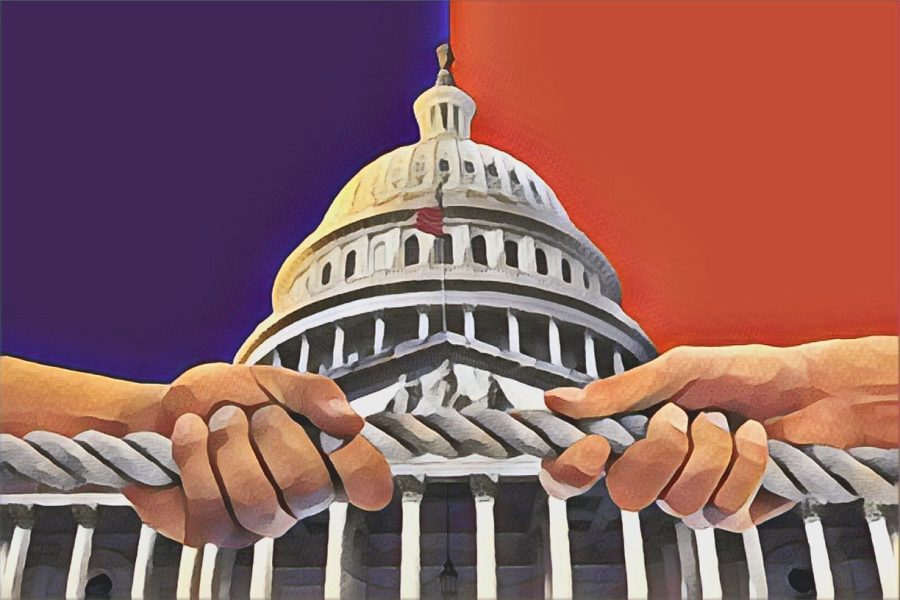A tale of two parties
April 12, 2023
John Adams wrote that the greatest “political evil” of a democracy was the emergence of “two great parties, each arranged under its leader, and concerting measures in opposition to each other.” In his farewell address, George Washington described the “spirit of party” as democracy’s worst enemy.
In a world where political discourse often devolves into ad hominem attacks, it’s obvious why the founders feared party formation. This divisiveness has seeped into every aspect of our lives — from the media we consume to the people with whom we connect. Political polarization also contributes to tribalism, in which individuals become more closely aligned with an ideological group and view the “other side” as their enemy.
UT must prepare its future leaders to mitigate political dysfunction. By incorporating discussions about polarization and tribalism in its government and history classes, UT can empower students to address these challenges head-on and promote empathy within its student body.
History professor Henry W. Brands explained the importance of understanding tribalism’s roots within human nature and its nuance throughout United States history.
“So, it’s entirely possible that humans, by nature, sort themselves into tribes,” Brands said. “And what varies from time to time is what the markers of those tribes change. I think nowadays (tribal) identification is more overtly political than it has often been in the past. These markers in the past — religion, race, class — still influence people, but we live in a time where there is limitless politicization of everything.”
It’s important to note that subscribing to a particular ideology or belonging to a certain party is not necessarily harmful. In fact, joining groups that support causes we’re passionate about is often beneficial. But when our beliefs limit us from understanding opposing viewpoints and prevent compromise, the dangers of political polarization become apparent.
Brian Peña, vice president of University Democrats, explained how opposing viewpoints in highly political government classes are crucial.
“You’re going to take a lot of (government) classes at UT where you’re going to be surrounded by people that are kind of going to push you one way,” Pena said. “There are some government classes that are discussing really polarizing (topics). In those situations, you should be able to craft curriculum around the idea that you expose students (to opposing perspectives).”
Jackson Paul, co-chairman of the UT chapter of Young Conservatives of Texas, said history classes should warn students about the dangers of political polarization.
“You can see that a lot of what took down the Roman Republic was polarization. … You can’t run society like that in the long run,” Paul said. “I think that if we have history classes that focus on how these free societies collapsed, I definitely think it would help people understand that America needs to avoid (polarization).”
Government and history are inextricably interrelated. We can gain valuable insights on political polarization from understanding ancient republics like the Roman Republic, classical Athens and ancient Carthage. This academic approach can provide further context for understanding polarization’s implications today. Engaging with these complexities in the classroom can also encourage students to think critically about the information they consume, the beliefs they hold and the assumptions they make.
By helping students understand how a healthy democracy works, UT can encourage its future leaders to tackle issues with empathy and understanding. Discussing the intricacies of polarization and tribalism in government and history classes is an investment in our society’s future.
Muyeed is an economics sophomore from Southlake, TX.






